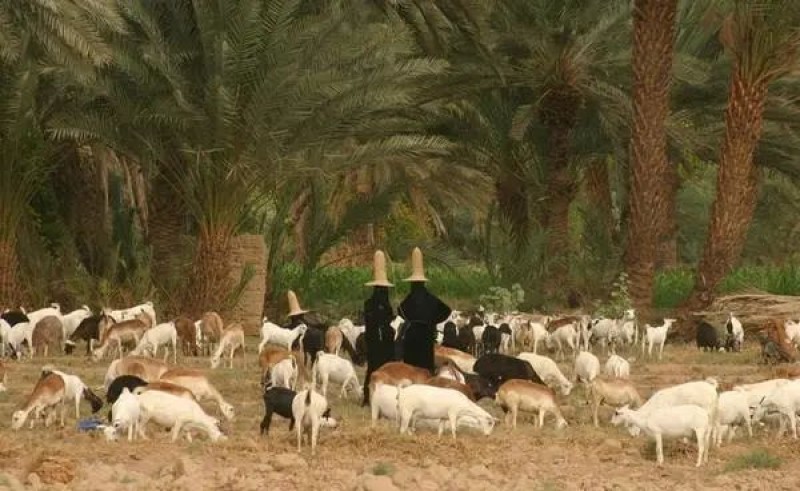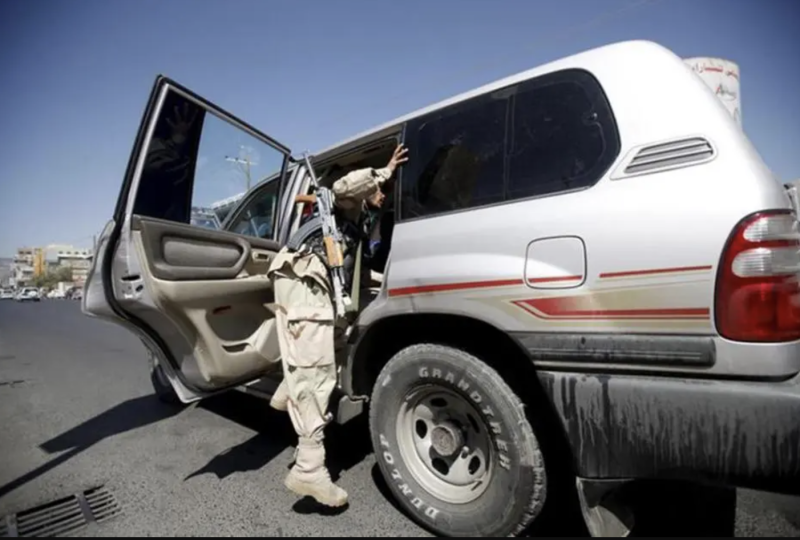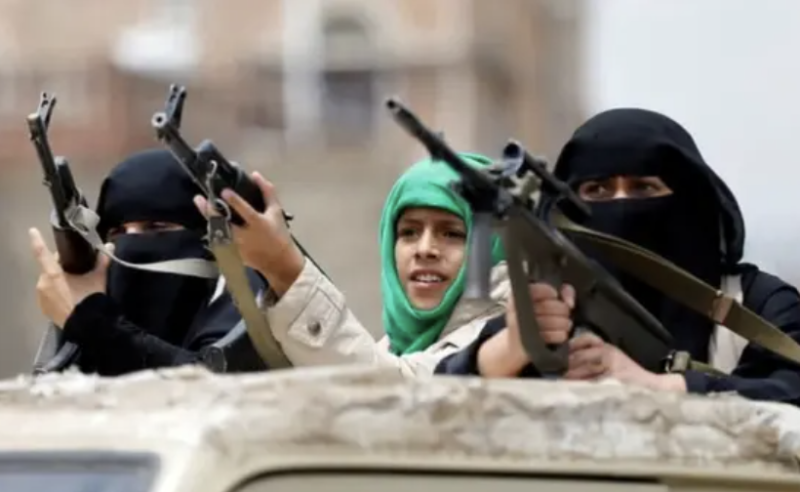Children as young as 10 fight, kill and die in Yemen's war.


The number etched on the bracelet around Mohammed's wrist gave the 13-year-old soldier comfort as missiles fired from enemy warplanes shook the earth beneath him.
For two years Mohammed fought with Yemen's Houthi rebels against a military coalition led by Saudi Arabia and backed by the United States. He says he tortured and killed people and didn't care whether he lived or died.
But if he died, the bracelet would guarantee his body made it home.
"When I become a martyr, they enter my number in the computer, retrieve my picture and my name, then print them with the name 'Martyr' underneath," Mohammed said. It would be pasted to the lid of his coffin for return to his family.
Mohammed was among 18 former child soldiers interviewed by The Associated Press who described the Houthis' unrelenting efficiency when it comes to the recruitment, deployment and even battlefield deaths of boys as young as 10.
While both sides in the four-year civil war have sent children into combat in violation of international human rights conventions, the Houthis are believed to have recruited many more than the coalition — often forcibly.
The Houthis have inducted 18,000 child soldiers into their rebel army since the beginning of the war in 2014, a senior Houthi military official acknowledged to the AP. He spoke on condition of anonymity due to the sensitivity of the information.
That figure is higher than any number previously reported. The United Nations was able to verify 2,721 children recruited to fight for all sides in the conflict, the large majority for the Houthis, but officials say that count is likely low, because many families will not speak about the issue out of fear of reprisals from Houthi militiamen.
The Houthis say officially that they don't recruit children and send away those who try to enlist.
Some of the children told the AP they joined the rebels willingly, mainly because of promises of money or the chance to carry a weapon. But others described being forced into the service of the Houthis — abducted from schools or homes or coerced into joining in exchange for a family member's release from detention.
Many can be seen manning checkpoints along main roads across northern and western Yemen, AK-47s dangling from their narrow shoulders. Others are sent to the front lines as foot soldiers.
Children interviewed by the AP said they were targeted by recruiters on soccer fields, farms and, especially, schools.
A 13-year-old named Riyadh said half of the fighters he served with on the front lines in Yemen's mountainous Sirwah district were children. Rebel officers ordered them to push forward during battles, even as coalition jets zoomed overhead, he said.
He said he pleaded with his commander to let the young fighters take cover during airstrikes: "Sir, the planes are bombing."
The reply, he said, was always: "Followers of God, you must attack!"
An unknown number of child soldiers have been sent home in coffins.
More than 6,000 children have died or been maimed in Yemen since the beginning of the war, UNICEF reported in October. But the U.N. agency has not been able to determine how many of those minors were combatants and the Houthi-run Defense Ministry does not release its records for casualties.
A former teacher from the city of Dhamar said that at least 14 pupils from his school were recruited and then died in battle. Their pictures were placed on empty classroom seats in 2016 during the Week of the Martyr, which the Houthis celebrate each year in February. Most of them were fifth and sixth graders, he said. An education official from Dhamar confirmed his account. The two spoke on condition of anonymity because of fear of retribution.
The teacher said some of the dead children's parents were Houthi leaders who willingly sent their sons to the front lines. "It's painful because this is a child and they are all my children because I was their teacher," he said. "They were taken from the school and returned in coffins."
The Houthis and the coalition forces began peace talks in Sweden two weeks ago, but an end to the war appears far off. Many worry about what will become of the children who fought in the Middle East's poorest country once a peace treaty is signed.
AFP.

Sana'a — A Leader affiliated with Houthi militias Leader reportedly abducted two young girls tending sheep in a valley of Al-Ayoubi area, Qa&…

Aden -- Human Rights Watch (HRW) has issued a new report documenting a wave of arbitrary detentions carried out by Houthi authorities in Yemen in r…

Sana'a -- The Yemeni Network for Rights and Freedoms has revealed alarming figures documenting 1,654 violations committed by the Zainabiyat, the al…